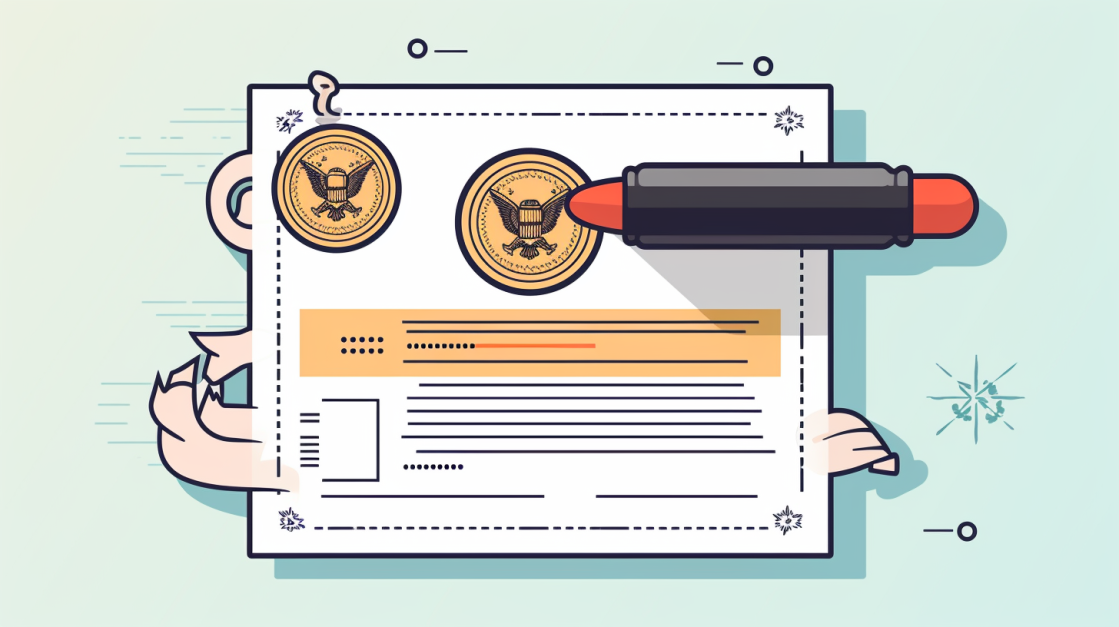What to Do if You Missed the Tax Deadline

There’s a unique bout of forgetfulness we all seem privy to when it comes to the annual hustle and bustle of filing taxes. You know how it goes: one day you’re cruising along fine, only for an inconvenient truth to dawn on you – you’ve missed the tax deadline! Fret not, because this blog becomes your beacon in foggy times like these.
We’ll help untangle your questions around late filing, streamline confusion with clear facts (Bet you didn’t realize that the IRS caps any failure-to-file penalty at just 25% of owed taxes?), and offer guidance on managing potential predicaments.
So come along as we take a leisurely yet informative walk through those occasionally overlooked steps of tardy tax filing together!
Key Takeaways
- If you miss the tax deadline, file your taxes as soon as possible. The quicker you do it, the less penalty fees you will get.
- Pay what you can right now to cut down on how much money you owe. This action also lowers any extra costs.
- If needed, request more time by using IRS Form 4868 for an extension until October 16, 2023.
- When tough times come and paying all your taxes seems hard, look at payment plans or talk with the IRS. They may help make things easier.
- Time helps if moving towards a tax refund. Even late filings let them return your money up no matter when it was due. But only wait for three years from the main filing date or two years since last paid (whichever falls later): not before!
The Consequences of Missing the Tax Deadline

If you breeze past the tax deadline without filing, expect to face some repercussions – IRS penalties and interest on unpaid taxes start racking up. Overlooking a fat tax refund? You might wave it goodbye as the clock ticks on.
Also, brace for possible audits and investigations that could spring from Uncle Sam’s curiosity about your missed filing date.
Penalties and Interest
The IRS adds a fee if you file your taxes late. The charge is 5% of the tax money you owe for each past month. But they will only charge up to 25%. They add another fee if you don’t pay on time.
This one is half a percent per month, for every overdue dollar. Both fees may apply in some months. In this case, the filing penalty goes down by half a percent.
Loss of Refund
Not filing taxes on time can lead to lost money. You may lose some of your tax refund. The IRS might keep part of it all because you missed the deadline. It is true! Please, don’t let this happen.
Getting a full tax refund needs swift action. Talk to a tax professional right away if you want help with this issue.
Potential Audits and Investigations
If you miss the tax deadline, the IRS might check your taxes. They do this to see if your forms are right and complete. This is called an audit. If they find a mistake, you could owe more money to them plus penalties and interest.
The planning of the audits comes after missing deadlines for filing taxes or paying them on time. So, even though audits seem scary, there’s good news too! The IRS has plans that can help if you don’t have enough money to pay all your tax at once.
What to Do if You Missed the Tax Deadline

Don’t panic if you’ve missed the tax deadline! The first step you should take is to file your taxes as soon as possible, even if they’re late. It’s crucial not to further delay filing, regardless of whether you owe money or expect a refund.
If you can’t pay your entire tax bill immediately, contribute as much as possible to minimize penalties and interest. Consider requesting an extension using IRS Form 4868 if necessary, but remember that while it gives additional time for filing your return, it doesn’t extend the time for payment of any taxes owed.
Don’t let fear hold back; get started on resolving this vital issue at once!
File as Soon as Possible
I start on my tax files as soon as I can. The failure-to-file penalty adds up fast! It’s 5% of the taxes due for every month I delay. This maxes out at a high 25% of any taxable amount.
But good news! If I’m expecting a tax refund, there is no late fee from the IRS. Filing early helps keep me in line with the extended tax deadline, October 16, 2023 this year.
Pay as Much as You Can
Tax season can be tough if you do not have all the money needed. If this happens, pay as much as you can right now. This will help cut down what you owe and drop some of the penalties and interest.
The IRS failure-to-pay penalty is 0.5% for every month your unpaid taxes are late. So, paying something is better than paying nothing.
You could also look at installment payment options or working with the IRS to lessen how much you owe them. Try to find a way to put some funds towards your tax account each month to lessen that total debt quicker! It’s like chopping down a large tree; every swing helps even if it’s small!
Request an Extension if Needed
If you missed the tax deadline, it’s not too late to ask for more time. You can fill out IRS Form 4868 to get an extension until October 16, 2023. This stops any failure-to-file penalty from adding up.
But be careful! Even with an extension, interest will still grow on unpaid taxes. So try your best to pay off as much debt as soon as possible to avoid extra costs. Don’t let fear stop you from taking action; asking for more time is a smart move if you need it.
What If You Can’t Pay Your Taxes?

Finding it impossible to pay your taxes? Don’t panic; there are options available such as installment payment plans, negotiating with the IRS, or even requesting an extension of time to pay.
Stick around for a comprehensive breakdown of these avenues.
Installment Payment Options
Getting your taxes paid can be easier with installment payment options. Here are some steps to follow:
- Look into the option of credit card payments or bank loans. These can help with paying your tax bill.
- Check out the IRS installment agreement. If you owe less than $10,000 and can pay in three years or less, you may qualify.
- Keep in mind the IRS charges for this service. The cost ranges from $52 for direct debit up to $105 for other payments.
- Be aware that interest still builds up on overdue payments. For the last part of 2022, the rate was 6%.
- Explore an “offer in compromise“. This is if you really cannot meet your tax bill but still wish to settle it.
Negotiating the Amount Owed with the IRS
You can talk to the IRS if it’s hard for you to pay all your taxes. This is called negotiating. Sometimes, the IRS may lower the amount of tax you owe. They call this an “offer in compromise.” But not everyone gets this option.
Firstly, you must prove that paying your full tax bill will lead to money troubles. Here’s how: bring out proof that shows all about your income, bills and what money you have saved.
Then fill out and send Form 433-A (for individuals) or Form 433-B (for businesses). Also include Form 656 titled ‘Offer in Compromise.’ The IRS then looks at all of these things before they make a choice.
Requesting an Extension of Time to Pay
You can ask the IRS for more time to pay your taxes. This is called a “payment extension“. To do this, you fill out Form 1127, which is on the IRS website. You tell them about your money problems in it.
The form asks how much you owe and why you can’t pay right now. It also asks when you think you will be able to make full payment.”.
Frequently Asked Questions

I know you may have tons of burning questions regarding missing the tax deadline. Let’s address a few of them – do you often wonder how long a tax extension is good for? Or what happens if you miss the tax deadline by just one day? And does missing the deadline mean you lose your precious tax refund? Don’t sweat it; I’m here to provide clear, concise answers to these common queries and more.
How long is a tax extension good for?
A tax extension gives you more time to file your taxes. For the 2023 tax season, the extra time goes until October 16, 2023. But be careful! If you file after this new deadline, you might have a failure-to-file penalty.
This penalty is not small – it’s 5% of what you owe each month or part of a month that your return is late. It can go up to as much as 25% of your unpaid taxes! Don’t let this scare away those waiting for refunds though.
They won’t see any penalties, even if they’re filing late.
What happens if you miss the tax deadline by one day?
Even one day late can cause problems. If you miss the tax deadline by just a day, you may face a penalty from the IRS. This is called a failure-to-file penalty. It’s not small either.
The fee begins at 5% of your due taxes for each month or part of the month that your return is late.
The highest this fee can go is 25% of what you owe in taxes. So, it’s best to file on time to avoid any extra charges! But if there’s good news here, its that if you are getting money back and have yet to turn in your return forms, no late filing fees will be charged by the IRS.
Do you lose your tax refund if you file late?
No, you don’t lose your tax refund if you file late. Even if it’s past the deadline for filing taxes, the IRS will still give your money back. But, try not to be too late. If you wait more than three years from the original due date of the return or two years from when you paid the tax (whichever is later), you could lose out on any refund that was owed to you.
Conclusion

It’s okay to miss the tax deadline as long as you act fast. File your taxes and pay what you can now. Ask for help or more time if needed. Keep cool, make a plan, and get it done!
FAQs
1. What happens if I miss the tax filing deadline?
If you miss the IRS filing deadline, you may have to pay failure-to-file penalties. The late-filing penalty is based on any tax not paid by the due date.
2. What can I do if I missed the federal tax return deadline?
You can file your taxes late using TaxAct or TurboTax and possibly avoid a late-payment penalty with first-time penalty abatement or a waiver from IRS for some cases of financial hardship.
3. How does missing my state taxes affect me?
Missing your state taxes has its own rules separate from federal ones. If you miss out, contact your state tax agency and look up about their respective deadlines and possible penalties.
4.What options do I have for paying my owed taxes?
The IRS offers short-term online plans and long-term online payment plans like monthly installment agreements for those who owe money after filling their Form 1040 Federal Income Tax Returns but cannot make full payment at once.
5.How could natural disasters impact my tax situation ?
In case of federally declared disasters, specific relief might be available in affected areas extending filing and payment deadlines.To stay updated check out resources like Kiplinger’s free e-newsletters,TurboTax Live Full Service updates or head over to the IRS Disaster Relief page directly.
6.Are there any tools that can help me understand what i owe well before next year’s deadline?
Yes! Tools such as Taxcaster Tax Calculator & W-4 Withholding Calculator available via major providers like Forbes Advisor, TurboTax etc.,can help determine potential owing amount much ahead of April 18 ,2023;tax year 2022’s timeline






